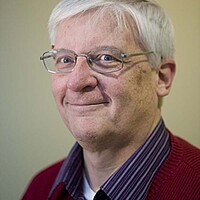Cynthia Kersey helps girls become 'unstoppable'
Loading...
Cynthia Kersey was at a low point in her life. Her marriage had broken up; she was grieving and heartbroken.
To get a fresh perspective, she contacted Millard Fuller, the founder of Habitat for Humanity, whom she had interviewed previously for a book she was writing.
"When you have a great pain in your life, you need a greater purpose," he told her. Why don't you build a house for a family in need in Nepal, a place he had just visited, he suggested.
"I had never been to Nepal before," says Ms. Kersey, who at the time was a motivational speaker and author of two popular books. She asked herself "How many houses would I have to build to get rid of this pain in my life?" She came up with the number 100.
"That felt bigger than my pain," she recalls. "I would think about these families that don't even have a place to live and that would get me out of bed."
That year she raised $200,000 toward her goal.
"I took 18 people to Nepal, and we built the first three of the 100 homes that were subsequently built," Kersey says in a phone call from Croatia, where she was attending a meeting. "I experienced giving in a way I had never felt before." She felt she had received far more than she had given.
"What I really got was the profound gift I experienced working side by side with these families helping to build their homes," she says. "I 'got it' at a cellular level, and it completely changed my life."
Four years ago she abandoned her career as a motivational speaker and author altogether to spend full time on her charitable work. She founded the Unstoppable Foundation, which concentrates on getting girls in Africa into school and keeping them there.
She hit on the idea after attending a conference where she was able to meet 40 African women achievers. "I fell in love with these women," Kersey says. One in particular, named Rose, worked in refugee camps. "To me she was like Mother Teresa. She was that extraordinarily generous."
The No. 1 concern of the African women was how to educate their children. "Because without an education there's no hope for a better future for them," Kersey says.
Today the Unstoppable Foundation educates about 6,500 girls a day in Kenya, Uganda, and Liberia. It has also taught more than 3,000 of their parents how to earn an income and given more than 17,000 people access to clean water, sanitation, and healthcare.
That's all part of the foundation's "Five Pillars" strategy: Children can't get an education, Kersey says, unless other basic needs are met, including clean water and sanitation, nutritious food, basic healthcare, and parents with income-earning skills.
But educating girls is at the core.
"When you educate a girl, you don't just change that child, you change that family, that entire community," she says. "It's an exponential impact."
Some 43 percent of all girls worldwide not enrolled in primary school are in Africa. But Kersey says she isn't dragged down by the size of the problem. Rather, she concentrates on the people who are being helped.
"For the people whose lives are being impacted, it's a profound change," she says. "I focus on 'what more can I do' rather than 'it's so overwhelming I can't do anything.' "
This year marks the first graduating class at a secondary school for girls opened by the Unstoppable Foundation. The story of one student, Grace, shows what's possible, Kersey says.
Grace was almost forced by her father to marry as a child. But because she applied to the school he allowed her to stay with a sister and attend school instead of marrying. Now she's graduating and planning to go to college and become a journalist. "Education changes everything," Kersey says.
Another guiding principle for Unstoppable is to make sure that the foundation's efforts are sustainable and "really driven by the community," she says. "We're not going in there dictating anything." The aim is for the community to continue the school and other programs long after the foundation has left.
The Unstoppable Foundation is just one of a growing number of efforts to raise the status of girls and young women in developing nations. Recently it honored Malala Yousafzai, the Pakistani school girl whose efforts on behalf of educating girls have won international attention.
It will take the work of many individuals and organizations to better the lives of these girls, Kersey says. "It's going to require a lot of people doing things to make it happen."
• To learn more about the Unstoppable Foundation visit http://unstoppablefoundation.org.








